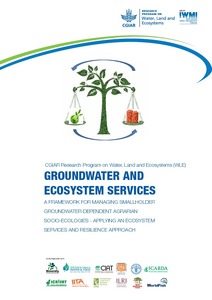Evaluation des ressources en eau du bassin de la Volta. In French
Le projet « WISE UP to climate » vise a demontrer l'utilite des infrastructures naturelles comme une « solution basee sur la nature » pour l'adaptation au changement climatique et le developpement durable. Dans le bassin de la Volta, les infrastructures naturelles, comme les construites, offrent des benefices pour la subsistance des personnes. Comprendre les interrelations entre ces deux types d'infrastructures est une condition indispensable a une gestion et un developpement durables des ressources en eau.


